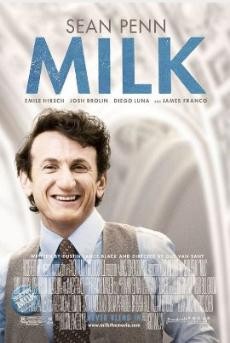Perhaps the potency of Milk resides in its uncanny timing. The film graced select theatres Nov. 28 in the US; the same month California (Harvey Milk’s California) passed Proposition 8, ruling marriage to be unrecognized between persons of the same sex. Apparently the passage was in fear that “”gay marriage (would) be taught in public schools,”” reported Jessica Garrison in an article for the LA Times.
Harvey Milk was America’s first openly gay politician to hold a public office – and yes, it was in the Golden State. Director Gus Van Sant (“”Good Will Hunting””) grabs the megaphone and leads a cast including Sean Penn (“”I Am Sam””), Emile Hirsch (“”Alpha Dog””), James Franco (“”Pineapple Express””) and Josh Brolin (“”American Gangster””) in a film fit to honor the life of an exceptional man, leaving its audience “”recruited””.
Whether it’s the taped autobiography Milk records sitting at his kitchen table , the actual news footage laced in or Van Sant’s prowess in acting as the omniscient narrator, Milk acts as a well crafted novel. It’s tightly woven and gripping. As you watch, note the uses of foreshadowing as Milk and Scott Smith (James Franco) lie in bed together, eight years before Milk’s assassination.
The movie is time stamped at pivotal moments with a gritty, white font. In 1970 Milk calls out to Smith, 20 years his junior, in a dim stairwell, bringing himself nose to nose with the stranger and coyly planting a kiss on his mouth (it’s his birthday after all, and he’s not 40 yet). By the time 1978 blinks across the scene, Milk has finally been elected district supervisor after two failed attempts and aided in the triumph over Proposition 6 (an appeal to displace homosexual teachers from schools in fear of promoting a gay way of life to children – sound familiar?). His disintegrated yet persistent relationship with Smith, interlaced with Milk’s obsessed and troubled lover Jack, is dissected in sometimes heartbreaking detail.
Francine Maisler arranged a cast that managed to capture and magnify the heart of every character, granting an intimacy scarcely achieved between viewer and maker. Harvey Milk leaves the audience with heavy hearts, a few words of constant hope and the will to fight not just for oneself, but for the collective.









